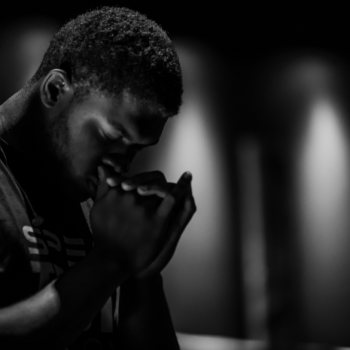Here we go again . . . yet another round of debates about how commercial Christmas is becoming.
This time the conversation will take place at a time when people will scrimp, save, and comparison shop to give loved ones a modest gift. When it is all over, the angst about how commercial Christmas has become will be replaced by fretting over the way in which the drop in profits signals how weak the economic recovery really is. For now, though, search the subject "commercialism and Christmas" and in .27 seconds you will get 167,000 hits on the internet.
"Bah humbug!"
Here's what I think -- and I will be interested in hearing what you think . . .
Two central points:
The conversation about commercialism and Christmas is itself evidence of how deeply we misunderstand the spiritual challenges of celebrating Christmas.
And the annual self-flagellation, which passes for a sage conversation about the "real meaning" of the holiday, has become a substitute for grappling with the deeper bankruptcy of our celebration.
Here is how I arrive at this conclusion:
One: Commercialism is no real threat to an authentic appreciation of Christianity -- never mind Christmas. When Christians have understood what they believed and lived deeply out of their beliefs, what the rest of the world has believed has never been an issue. In fact, it could be argued that Christianity has often been at its best when it was a minority movement and nearly everyone else around it was doing and thinking something else. (The good news for us is that we are on our way back to being a minority movement in some parts of the world.)
Two: The real problem is that we don't believe deeply enough in the meaning of Christmas. For us, it ought to be the hinge on which the whole of history and human self-understanding turns. Advent is the beginning of the liturgical year for a reason. Something new is in the making. With its coming we understand our purpose in new terms. We are here to grow in intimacy with God and to serve God out of lives transformed by that intimacy. We are not here for any other reason, and everything else we do -- no matter how good or dear to us -- is, more importantly, the laboratory in which we learn to look more like Jesus.
Three: If we really believed in the life-changing nature of Christmas, then we wouldn't be unhinged by the commercial blather. We would look straight through it.
We would also realize that the debate about commercialism and Christmas isn't the issue at all. The real issue is the inability of the culture to grasp the nature of Christmas itself. The annual debate over the commercialism of Christmas arises out of the desire to impose a meaning on the celebration that is satisfying in secular terms. And a culture without a deep connection with a religious narrative will always flail around looking for a way to re-invent what is lost. In that sense, the debate over commercialism and Christianity isn't a believer's debate at all. It's the debate the secularized segments of our culture have about its own rudderless existence.
So, what about gift-giving?
The practice of giving gifts has a tenuous and complex relationship with the celebration of Christmas. In the Roman Church it was originally associated with Three Kings Day or St. Nicholas Day and, in many parts of the world, it still is. In Protestantism, as churches abandoned saints' days and the liturgical calendar, the practice was moved to Christmas.
At its best, gift-giving has the potential for reconnecting with the Christmas story and reflects an embodied spirituality that invites us to express the deeper truths we embrace in concrete ways. That can be a good thing.
We get into trouble when we use the occasion to make statements, impress one another, or satisfy our needs. That's when the real humbug begins.
Check back every Monday for the latest from The Spiritual Landscape, a regular column at the Mainline Protestant Portal at Patheos.
This column is also part of our Patheos Holiday Monitor question of the week: "Can we - or should we - resist holiday consumerism?" For more, visit the Patheos Holiday Monitor page.
11/29/2010 5:00:00 AM





